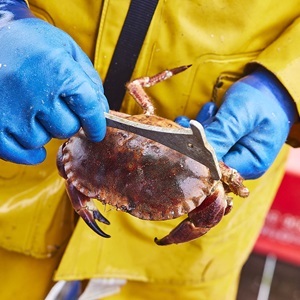“There is a way to meet the NHS guidelines without exacerbating the problem – by managing fish stocks sustainably, based on science and choosing to eat certified sustainable fish.”
The MSC's first 'Super Seafood: Sustaining people and planet' report shares insights into consumer behaviour around seafood in the UK and is drawn from independent research conducted by GlobeScan in 2024. It shows that 79% of UK consumers said they had made changes to their diet in the past two years, with two thirds (65%) of those citing health as the main driver for doing so, according to the report. Overall, 45% of UK respondents gave some kind of environmental reason for changing diets, demonstrating that concern for the planet, and ocean, is influencing dietary choices.
In the UK, the National Health Service (NHS) recommends a healthy, balanced diet should include at least two portions of fish a week, including one of oily fish. However, according to the survey only 21% of UK consumers are following this guidance, despite the NHS promoting fish and shellfish as ‘good sources of many vitamins and minerals’ and the ‘heart healthy’ benefits of oily fish.
The findings come amid growing fears about the state of the ocean, and the latest figures released by the UN’s Food and Agriculture Organisation, showing more than a third (37.7%) of fish stocks are overfished. With this trending in the wrong direction. This new data underscores the urgent need to accelerate progress in sustainable fisheries management, particularly if the UK public are to increase fish consumption in pursuit of healthier diets.
Super Seafood: Sustaining people and planet
The report concludes that, while seafood is an important source of nutrition, support for progressing sustainable fishing needs to be prioritised if governments are to deliver positive health outcomes through increased fish consumption. Promoting and supporting the availability of sustainable products, such as those carrying the blue MSC ecolabel, is also needed – with the report highlighting that over half (55%) of UK seafood consumers would be more likely to purchase an MSC-labelled product, and 53% prepared to pay more for products that come from a certified sustainable fishery.
“Fish and seafood must be caught sustainably to meet the nutritional and health needs of the nation without risking further overfishing. Through collaboration and programmes like the MSC’s, we can ensure there’s more fish on our plates for generations to come.”
MSC UK and Ireland Programme Director




